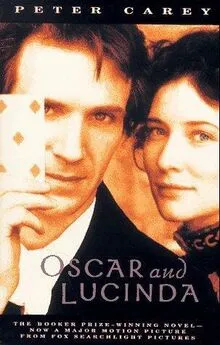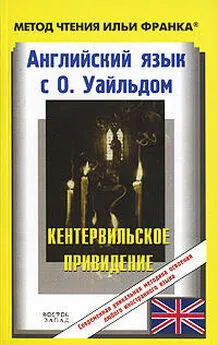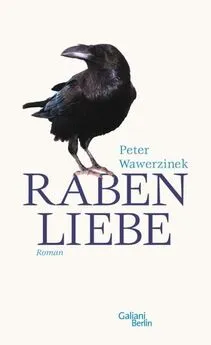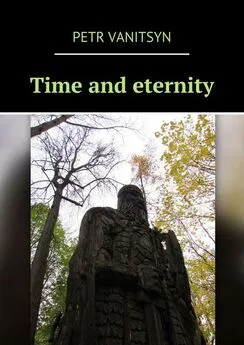Peter Carey - Oscar and Lucinda
- Название:Oscar and Lucinda
- Автор:
- Жанр:
- Издательство:Vintage Books
- Год:1988
- Город:New York
- ISBN:0-679-77750-4
- Рейтинг:
- Избранное:Добавить в избранное
-
Отзывы:
-
Ваша оценка:
Peter Carey - Oscar and Lucinda краткое содержание
The Booker Prize-winning novel-now a major motion picture from Fox Searchlight Pictures.
This sweeping, irrepressibly inventive novel, is a romance, but a romance of the sort that could only take place in nineteenth-century Australia. For only on that sprawling continent-a haven for misfits of both the animal and human kingdoms-could a nervous Anglican minister who gambles on the instructions of the Divine become allied with a teenaged heiress who buys a glassworks to help liberate her sex. And only the prodigious imagination of Peter Carey could implicate Oscar and Lucinda in a narrative of love and commerce, religion and colonialism, that culminates in a half-mad expedition to transport a glass church across the Outback.
Oscar and Lucinda - читать онлайн бесплатно полную версию (весь текст целиком)
Интервал:
Закладка:
36
Une Petite Amie
Lucinda did not really want a factory. She was frightened of it. She walked down to Sussex Street and watched working men emerging from the mills and wharves there. She was repulsed by them just as she was moved by them-the condition of their trouser turn-ups, the weariness of their jackets. They were alien creatures. She watched them as through a sheet of glass, as we, a century later, might look down on the slums of Delhi as a jumbo jet comes in to land. She could not know that she would, within two years, beyond the boundaries of this history, be brought so low that she would think herself lucky to work at Edward Jason's Druitt Street pickle factory, that she would plunge her hands into that foul swill and, with her hands boiled red and her eyes stinging, stand on the brink of the great satisfaction of her life. But at this time (1859) her hands were white and dry. She pitied the workers their poverty and weariness. And yet there was a way they looked at her that made her fear and hate them. It was her age, her sex, her class. She knew it. She knew it as well as you do, but the knowledge did not make it any easier for she was, so to speak, contracted to proceed. It was the factory, she felt, that gave her the entrée
Oscar and Lucinda
to the vicar of Woollahra's home. It was glass that gave her this cornfort. And as a result of her meeting with Dennis Hasset a kind of a reduction, an intensification, took place so that whilst, previously, the town of Sydney had been wide and windy, the streets rude with larrikins and so many "proper" people prepared to hoot and laugh and point at anything outside their narrow experience of life, and the whole place a-clatter with hooves and rolling iron and such a wide and formless canvas of spitting, coughing strangers that she could not endure an hour without the onset of a headache, and even though the library in George Street (her chosen retreat) had reassuring walls of books, busts of Voltaire and Shakespeare, it remained a cold, green, formal place, the territory of glowering men in high collars who might-this happened, too-"tsk, tsk" to see her there-so she remained, even amongst her books, a foreigner, friendless, without a map, until, finding the vicar of Woollahra almost by accident, the world shrank back around her. Only then did she allow herself to see how frightened and lonely she had been. Having discovered that glass was the medium wherein a friendship could flourish, she did not intend to let it go. Her need was such that the lamps stayed burning in the vicar of Woollahra's study until an hour better suited to an illegal Pak-Ah-Pu parlour in George Street. Such an offence would not go unremarked in Sydney, although had you brought this to her attention she would have asked that you refrain from patronizing her. She was her mother's daughter. She felt that she and Hasset were above the "ruck and tumble." They were business associates with business to discuss, manufacturers combating chemistry, philosophers with philosophy to deal with. They must study the musty journals of the Prince Rupert's Glassworks as silently as detectives investigating forgery. There were also sample bottles. My bottles, she thought. Blue, amber, clear; bottles for acid, pickles, poison, beer, wine, pills, jam, bottles with vine leaves, laughing jackasses, flowers, gum nuts, serpents and PROPERTY OF imprinted on their underside.
Years later when she remembered how she and the vicar had looked at bottles, with what abstracted superior curiosity they had examined them, so removed from the loud and sweaty business of sauces and pickles and jams, she judged her young self harshly and forgot how much of what she would become was already there. She was neither as ignorant nor as innocent as she would later imagine she had been. But she did enjoy handling these bottles, and she could not see how
126
Une Petite Amie
one could be judged "improper" for staying up late at night to do so. She was not ashamed, not of this, not of, sometimes (usually, often) falling asleep in the leather armchair beside the fire where she would, some time later, be woken with a mug of cream-rich cocoa. She clasped her hands around the mug and looked into the fire, wishing only that she did not have to travel the moonpale clay tracks to her hotel.
The girl did not know enough to care about the opinion of bourgeois society, but Dennis Hasset had no such excuse. He knew better, but gave way-although not without a certain amount of irritation-to the clearer demands of his protégé.
Lucinda had the habit of arriving at any time that suited her. She always apologized. She always hoped she did not inconvenience or interrupt, but such was the way she tilted her chin that she did not appear apologetic at all. He would come back from giving a lecture on "Common Salt," say, at a Mutual Improvement Association, and find her sitting by his fire in his study, or reading a book at his desk. It was true, as he often said from the speaker's lectern, that he saw education as a ladder standing on earth and reaching up to heaven and that to every high and glorious position there was a way from every condition of life, but he would not, just the same, have suffered anyone else reading his books as Lucinda did. She removed his crenulated leather bookmarks and put them back too early in the story. He would ring for a sandwich and only after he had waited too long for it would he discover that Cook was busy making apple pancakes for the girl who was now ensconced, reading, in the dining room.
And yet he thought her, against all this evidence, to be quite independent. On the nights she was absent he imagined her reading at Petty's Hotel; he had no suspicion that she had-as a lonely cat will always present itself at more than one back door-also found a place in Mr d'Abbs menagerie. Mr d'Abbs, as you will recall, was the principal of an accountancy firm, and supposed to be an associate of Mr Chas Ahearn. Lucinda had consulted Mr d'Abbs in secret because she was unsure of Dennis Hasset's business acumen. She lacked the courage to tell the vicar of Woollahra that she had sought this second opinion, that she had, as a result, been invited home to dinner and eaten goose at the long dark table beneath walls crowded with landscape paintings of the country Mr d'Abbs dubbed "Paradise." On those nights when she judged that Dennis Hasset had had enough of her, this is where she went, to sit with Mr d'Abbs, Mrs Burrows, Miss Shaddock, Miss Malcolm and Mr Calvitto. She liked to be with people.
Oscar and Lucinda
Dennis Hasset's diary shows Luanda's arrival in his life. It records the first meeting-the thirty minutes allocated Monsieur Leplastrier on the first Tuesday after Whitsunday, and, thereafter, a great number of red slashes across previous appointments, committee meetings particularly (St Andrew's Building, Ragged Schools, Hot Breakfasts for the Poor) but also the Zoological Society, a dinner with an old friend, and even a vestry meeting which was shifted three times within a month. He could never refuse her, and although he often imagined that he would, on the next occasion, send her packing, he never did. He was thirty-three years old, a grown man, but he was no match for her. Besides-and this surely is the heart of it-no matter how irritated he might be to see her sitting so proprietorially in his study chair, he always felt invigorated by her company, and when she fell asleep he sat contentedly opposite her and smiled while she snored. But he knew his behaviour was reckless. It was not consistent with his character. He wished success, and comfort. He hoped he would end his days in a bishop's palace with an intelligent dean to work beside him. And yet he drove this girl-biologically a mature female of the speciesdrove her himself to Petty's Hotel on three, sometimes four nights a week. She was rarely there before midnight, and often it was two a.m. when he rang the bell for the night porter. This night porter knew the young lady was also a friend of Mr d'Abbs. He found the situation amusing. But when this night porter winked at Dennis Hasset, the vicar was so tickled by the man's scurrilous misunderstanding, that he chuckled all the way home, sitting up on the box seat where his servant should have been, a parson in a parson's clothes in a city given over, at this hour, to footpads and the push.
Before August was properly started, Bishop Dancer had him in to give him what he liked to call a "caning." They did not like each other, anyway. The Bishop was a hunter after hounds, a High Tory with no tolerance for the subtleties of Whig theology. This was not the first of their disagreements. There had been a fierce fight about a sermon in which Dennis Hasset had argued against eternal damnation by suggesting ("You are not there to suggest," the Bishop had roared) that it was ridiculous to postulate a God with a less well-developed moral sense than our own and that damnation was, therefore, unthinkable. The Bishop would not waste his time arguing the point. Hasset was not to preach this Latitudinarian rot. When the vicar said he was not a Latitudinarian, the Bishop's face became as purple as his surplice.
The Bishop began this interview provocatively. He did not imagine himself provocative. Rather he saw himself as understanding-he came
A Game of Cards
right to the heart of what he thought the problem was: "Of course, Hasset, we all have our appetites."
Dennis Hasset did not imagine himself unduly fastidious, but he found this way of approaching Lucinda Leplastrier quite disgusting. She was a milk-breathed child he watched over when she slept by his fire. For a moment his handsome mouth looked as if it held a putrid oyster, but only for an instant, and Bishop Dancer did not notice.
The bishop was one to talk about appetites. He was a great fellow for hanging game until it was maggoty. Dennis Hasset tried to make him see the nature of his relationship with Miss Leplastrier. He spoke well and honestly. The Bishop nodded, rubbing his big hands across his high, bald dome, let his tongue show between his teeth, screwed up his eyes.
"Then post the banns," he said, with perfect misunderstanding.
"No, no," laughed the vicar of Woollahra, "we are too queer a pair to contemplate."
"Well," said Bishop Dancer, who was sick of trying to understand what the man was saying,
"you would be wise to marry someone."
"Indeed, yes."
And on that puzzling note, the interview ended. The Bishop imagined he had instructed the vicar to give up his "petite amie" and the vicar thought he had satisfactorily explained the innocence of their relationship: they were too queer a pair to contemplate., .-•: Later, when she knew Mr d'Abbs's house well-and she grew to know it very well indeed-she could smile at how she had perceived it, how she had exaggerated it in her mind, stretched and tangled it until it was a palace, a castle, the sort of home a peer might have, stretched out along the shores of Rushcutters Bay.
Oscar and Lucinda
It was not nearly as grand as she had, in her country innocence, imagined it. But it was the sort of house that leads to exaggeration. It was a ball of string. An untidy confusion of passages and stairs, the sort of place where you are always arriving where you do not exptect. There are long gloomy passages leading to bright alcoves containing nothing but a pair of uncomfortable chairs with dusty antimacassars. You go looking for the library and find yourself in a large laundry where the cement floor is covered with piles of tangled sheets. You look; to retrace your steps and find yourself in a garden where terraced palths lead down-via steps whose treads are far too high-to the harbonir. The hydrangeas are clipped for the winter and there is a gardener wiith rum on his breath (and odd socks on his feet) who offers to show y
Читать дальшеИнтервал:
Закладка:









